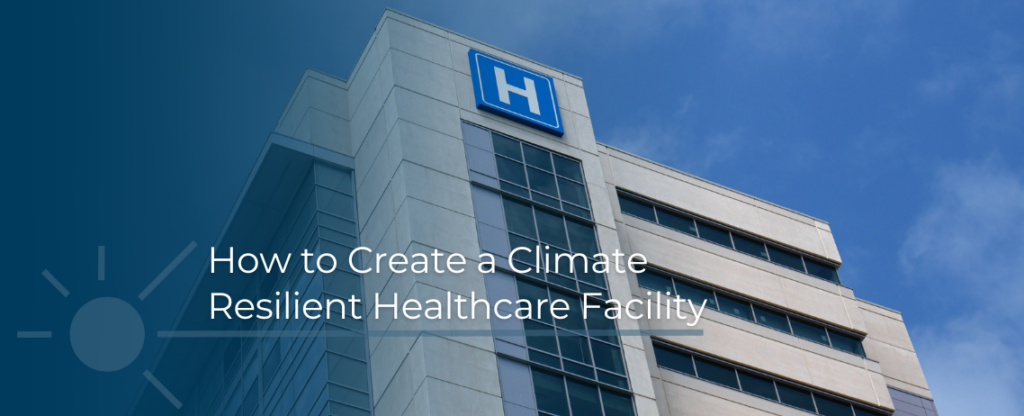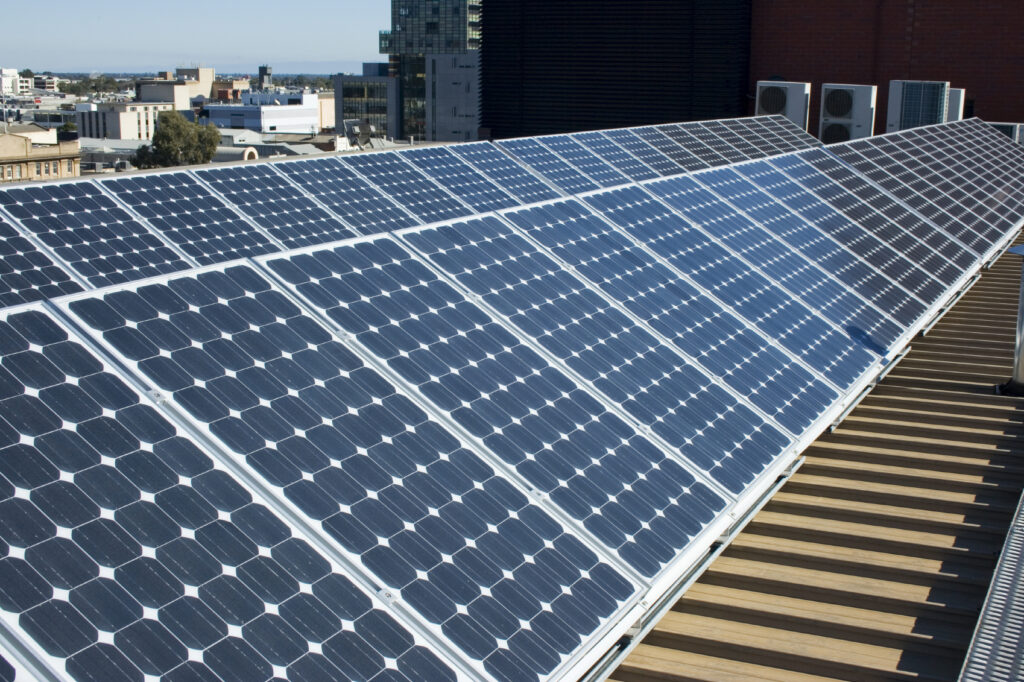
Climate change has contributed to increase in the frequency and intensity of extreme weather events, including heatwaves, hurricanes, droughts, and heavy rainfall. In 2023, there were 28 extreme weather events in the U.S., more than double the number seen a decade earlier.

Source: NOAA National Centers for Environmental Information (NCEI) U.S. Billion-Dollar Weather and Climate Disasters (2024).
Climate change-related threats can greatly impact healthcare systems, leaving facilities vulnerable to damage and at risk for power outages, which can be costly. Most importantly, it detracts from this vital infrastructure from being able to deliver on its mission to the community in its time of most dire need.
In addition, over the last decade, the costs associated with extreme weather events has grown substantially, as reported by the NOAA National Centers for Environmental Information.
Healthcare systems must prepare their facilities to withstand climate change threats and become more resilient, allowing them to keep operations up and running and avoid costly repairs.
3 Facility Solutions for Climate Resiliency
1. Emergency Power Storage
Whether the sun is shining or an extreme weather event has hit your area, power storage systems allow the excess energy produced by a renewable energy source, such as solar PV, for later use. When generation drops below a given threshold — due either to excess demand or limited sun light or wind conditions — or the electricity costs are at their peak, the battery kicks in, providing the extra power needed to maintain adequate power for a healthcare facility and lower energy costs.
These systems provide a reliable power supply during outages, especially during extreme weather events. They can also be configured to reduce dependence on the electrical grid, minimize downtime and disruption to operations, and save energy costs when extreme weather is not forecasted. This allows your healthcare system to become more resilient and reap additional economic benefits to support the improvement under typical weather conditions.
2. Weather Resilient Solar Panels

Solar photovoltaics (PV) panels are one of the best renewable energy sources for healthcare systems as they lower carbon emissions, reduce the amount of electricity used from the grid, and save on operational costs. However, they are susceptible to damage from extreme weather events, which can result in power outages and costly repairs.
Installing weather resilient solar PV panels enhances the reliability, durability, and performance, minimizing disruptions to operations so you can continue to deliver excellent care. As they are built to withstand severe storms and winds, they also require less maintenance and repairs, saving time and money.
3. Hurricane Proof Windows
As mentioned earlier, extreme weather events often result in damages to facilities – for healthcare systems, this not only requires costly repairs but can, again, impact their ability to deliver care. However, installing hurricane proof windows that are designed to withstand high winds and impact from debris can help minimize the risk of property damage. In addition, these windows also reduce heat transfer and air leakage, lowering heating and air-cooling costs year-round.
This solution helps enhance the safety and security of a healthcare facility, protecting your patients and staff, while also improving energy efficiency.
How SitelogIQ Can Help You Achieve Resiliency
Failing to create a climate resilient healthcare facility puts you at risk of experiencing power outages and property damage, resulting in disruptions to critical patient care and costly repairs. Climate change poses a serious threat to healthcare systems as the U.S. continues to experience more and more extreme weather events. Now is the time to implement climate resilient solutions.

At SitelogIQ, we help identify opportunities such as solar energy, power storage, and hurricane proof windows, to combat climate change threats. Our team of experts have over a decade of experience with healthcare facilities for portfolio-wide solutions, creating more sustainable and resilient spaces. Contact us today to learn more.






